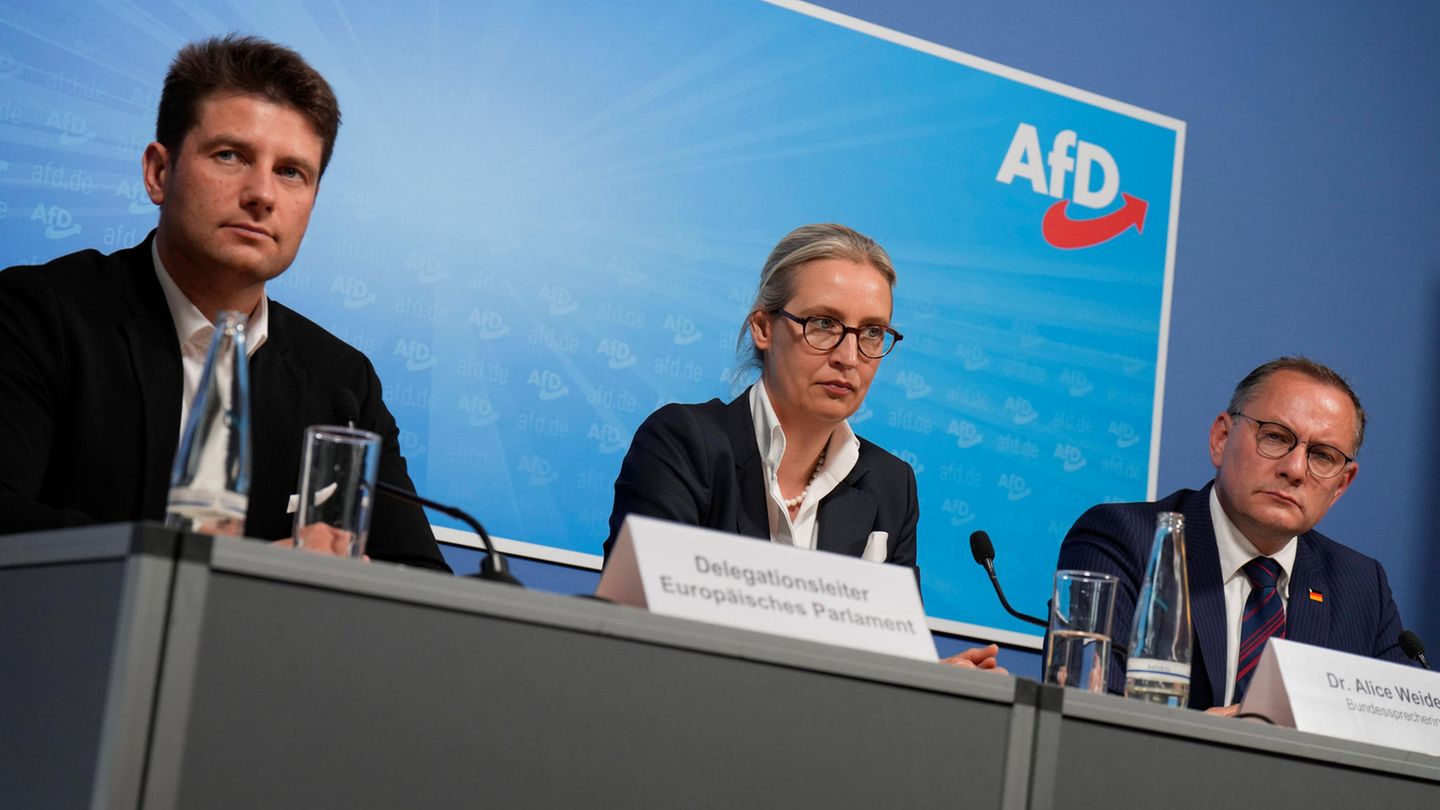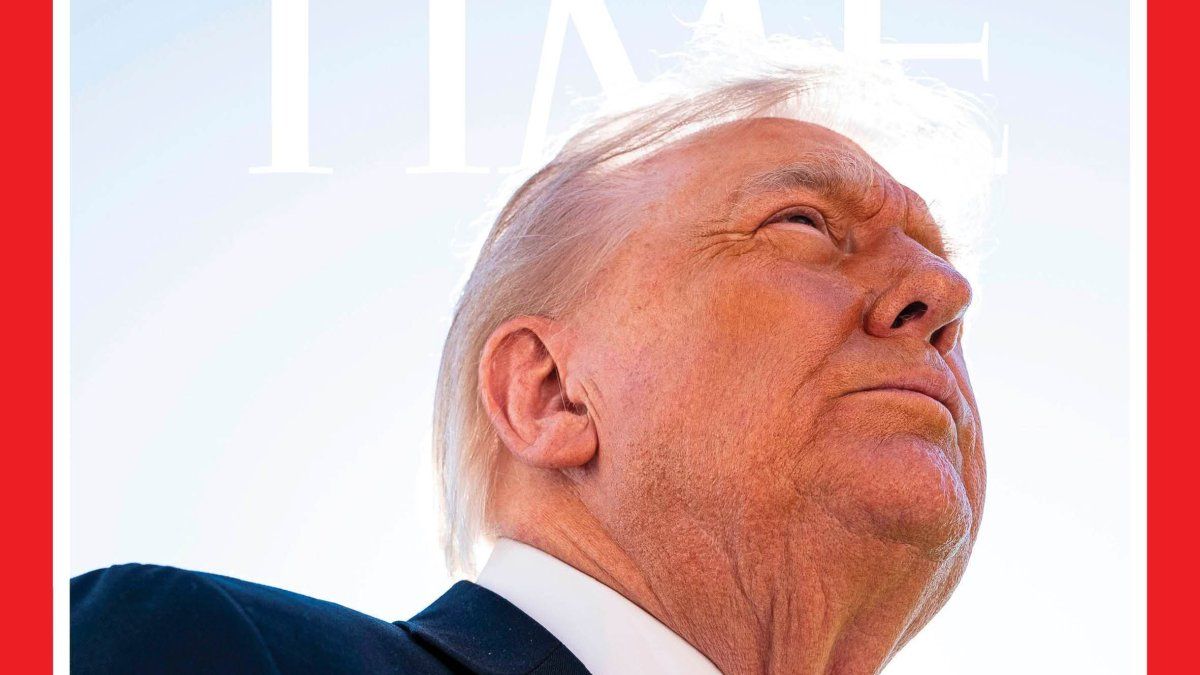analysis
After long negotiations, the AfD forms a group in the EU Parliament. It mainly includes right-wing extremists and Russia supporters.
That’s how quickly things can move in the AfD. In 2017, the former Social Democrat René Aust was hired as a speaker for the Thuringian parliamentary group. Two years later, he was elected to the state parliament and soon became deputy to state party leader Björn Höcke.
Now Aust will become chairman of a new group in the European Parliament. It is called “Europe of Sovereign Nations” (ESN), it was announced after its official founding on Wednesday evening.
At least 23 MPs from seven countries must come together to form a parliamentary group. In purely mathematical terms, the requirements are met for the time being with 25 members from eight nations.
But politically it is a risky experiment that Aust actually wanted to avoid. It is better not to form a faction than to form the wrong faction, he said, according to information from the star in an internal meeting of the delegation two weeks ago. The AfD would rather stay among themselves than get involved with Holocaust relativists. The formal registration deadline on July 3 passed without result.
But now Aust is taking a risk, and with him the party leadership around Alice Weidel and Tino Chrupalla. Why?
Friendly towards Moscow
On the one hand, the AfD simply wants money and influence, i.e. the multi-million euro parliamentary group subsidies and the application rights associated with the status. On the other hand, without a parliamentary group, there would be a risk that AfD MPs would join other parliamentary groups individually or in groups. This is the only way they can gain political relevance – and a personal budget for business trips and events.
Hence the experiment. The experimental arrangement consists of three representatives each from the Polish Konfederacja (“Confederation”) and the Bulgarian Wasraschdane (“Rebirth”), as well as one member each from the Slovakian Hnutie Republika (“Republic Movement”), the “Svoboda a přímá demokracie” (“Freedom and Democracy”) from the Czech Republic, the French Reconquête (“Reconquest”) and the Lithuanian People and Justice Union (“Union of People and Justice”). A non-party Hungarian representative is also part of the group, it was said.
Most of the partners are extremely friendly towards Moscow and some are calling for withdrawal from NATO and the EU. They are right-wing extremists anyway.
Anti-Semites and Romanians must stay outside
The designated AfD parliamentary group leader naturally wants to see this differently. After all, Aust told the starthe Pole Grzegorz Braun, who attacked a Hanukkah celebration in the Warsaw Sejm with a fire extinguisher in December, does not belong to the ESN, nor does the Slovak Milan Mazurek, who was convicted of racist remarks. In addition, SOS Romania was kept out. The Romanian party is particularly pro-Russian and is striving to annex Ukrainian territories.
“This means that the requirements of the federal executive board have been met,” said Aust. “We form a stable parliamentary group.”
Really? At the centre of the experimental arrangement is the AfD. With 14 representatives, it is by far the largest group and derives its claim to the presidency from this.
Although the scandal-ridden former top candidate Maximilian Krah was not included in the delegation, the question of his inclusion arises in the medium term, if only because he had been preparing a similar line-up for years. Krah worked systematically against the course of the French Rassemblement National (RN), which he considered to be too moderate, and as a result helped to ensure that the AfD was thrown out of the joint “Identity and Democracy” (ID) group shortly before the European elections.
Krah presents himself accordingly confidently. He is pleased that “a project that I have been preparing for years” is being implemented, he announced on X and exercised tactical modesty: “The importance of this project is much greater than my own role.”
Investigations are underway against AfD MP Petr Bystron
And even without Krah, the AfD delegation still has at least one major personnel problem: MP Petr Bystron is being investigated because he allegedly allowed himself to be corrupted with money from Russian sources.
But the AfD is not only starting a risky experiment with the ESN faction. It is also deliberately blocking its cooperation with the major right-wing parties such as Marine Le Pen’s RN, the Italian Lega, and Giorgia Meloni’s Fratelli d’Italia.
This shows once again that the image of professionalization that the AfD created with some success at its most recent federal party conference cannot disguise the fact that its self-radicalization is continuing. Even if the new faction was founded out of necessity, in the end Aust implemented to a large extent what the ousted top candidate Krah had planned.
It is quite possible that the flamboyant MP will soon join the parliamentary group. The AfD’s next experiment has only just begun.
Source: Stern
I have been working in the news industry for over 6 years, first as a reporter and now as an editor. I have covered politics extensively, and my work has appeared in major newspapers and online news outlets around the world. In addition to my writing, I also contribute regularly to 24 Hours World.




